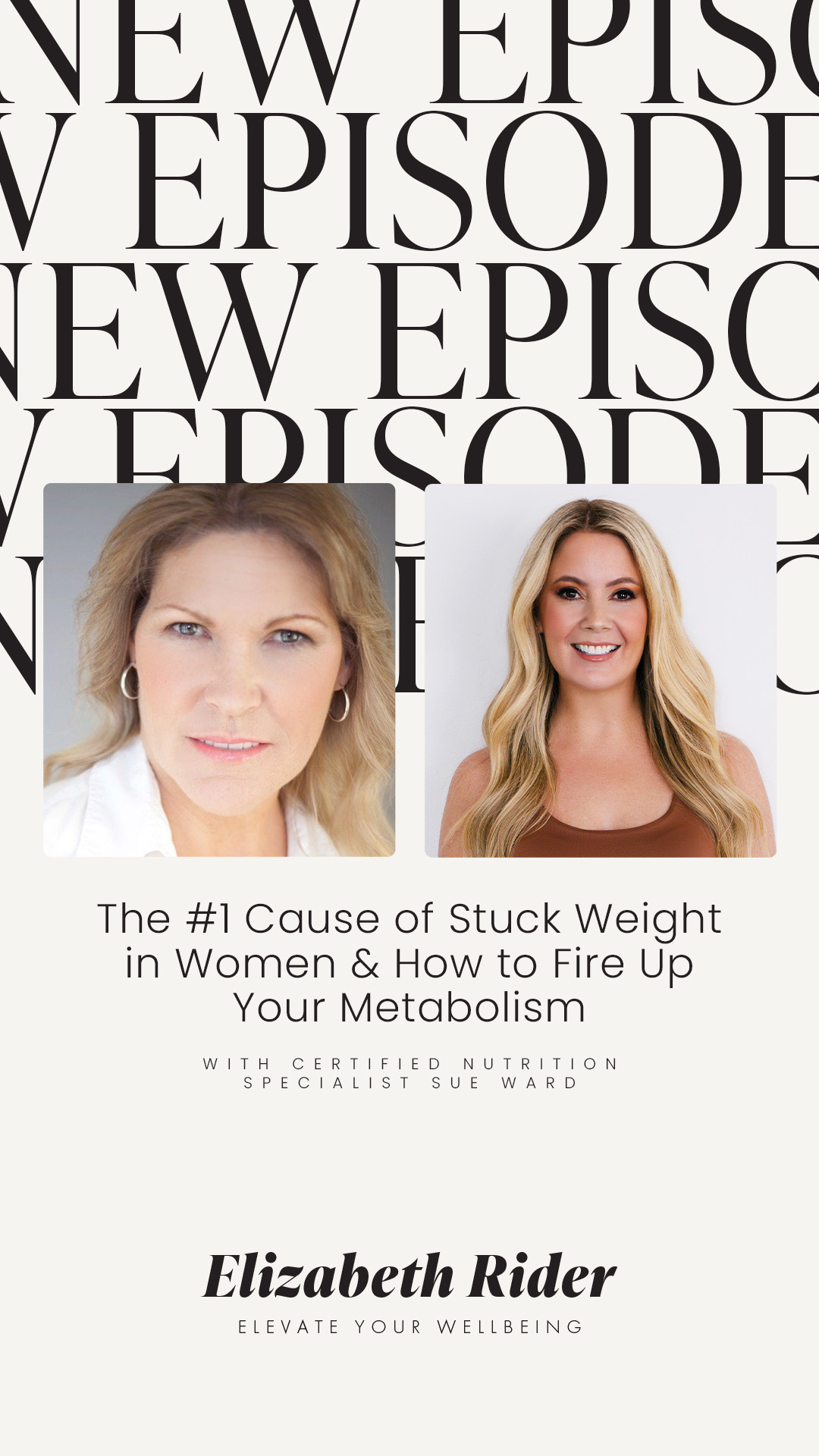
I am so excited about today’s episode because it’s chock full of insightful advice and nutrition tips that anyone can implement into a daily routine.
Listen in on Apple Podcasts or on any podcast platform. Or, simply click play in the video player above.
Our special guest today is nutrition extraordinaire and weight loss expert Sue Ward.
Sue is not only a certified nutrition specialist, but she is also the director of nutrition and education at the renowned Sanoviv Medical Institute. I’ve always said that Sue is a walking encyclopedia of functional nutrition information, not just to me, but to so many others as well.
Sue’s mission is all about teaching people how to be healthy humans in today’s world. And let me tell you, her passion for teaching anything related to nutrition, fitness, and natural health is truly inspiring.
The best part? Sue’s approach is all about simplicity. She believes in providing actionable tips and advice without overwhelming you with complex plans.
During this episode, Sue dives deep into the topic of liver health and its crucial role in your overall well-being. She breaks down the most common behaviors and foods that can lead to fatty liver disease, shedding light on why it’s so important to take care of your body’s hardest-working organ!
But that’s not all. Sue also reveals the biggest culprit behind stubborn weight in women and shares some practical tips to rev up your metabolism. Trust me, you won’t want to miss out on these insights.
Speaking of weight, weight loss can be a controversial subject, and it’s always a hot topic in health & nutrition circles with differing opinions on what is considered healthy and acceptable. It’s important to acknowledge that every person has their unique journey and experiences, and ultimately, they get to decide how they feel about their own bodies. It’s completely normal to have a certain weight at which we feel healthy, vibrant, and confident. Ultimately, it’s up to each individual to decide what’s best for them.
In addition, Sue emphasizes the importance of establishing sustainable habits rather than jumping on the bandwagon of the latest fad diets and health trends. She believes in empowering you to make choices that will benefit your long-term health.
So, make sure to tune in to this episode as Sue and I have a fantastic conversation filled with valuable advice and insightful tips. We’ll help you understand how to maintain a healthy liver, manage your metabolism effectively, and achieve optimal health, all while embracing a fulfilling life. Get ready to be inspired and take action toward a healthier you!
Episode Highlights
- Why is liver health the key to our overall health? [1:46]
- Does gut health overshadow liver health and how are the two connected? [2:52]
- Explaining fatty liver disease, its risk factors, and potential methods of reversal [5:53]
- The liver’s functions and its role in the body’s metabolism [8:48]
- The four biggest food culprits that contribute to fatty liver disease [10:21]
- Recommended essential and nutritious foods for promoting liver health [12:30]
- What steps can be taken to maintain a healthy liver? [16:25]
- Understanding orthorexia and its detrimental effects on health [23:32]
- Various supplements that have positive effects on your metabolism and overall well-being [25:31]
- Listen in on Apple Podcasts, or click play below to listen:
Guest Resources
- Sue’s website: Sue-Ward.com
- Listeners get 15% off on her 1:1 VIP Coaching program, which can be found here: https://sue-ward.com/vip-coaching. Code is ER15
- You can also grab 15% off on her dispensary using code ER15. The dispensary can be accessed here: https://sue-ward.com/store
Transcript:
Elizabeth Rider 0:52
Hello, everyone. Welcome back to the Elizabeth rider show. I always say such a treat because all of my guests are treats. This woman is so special to me, she is such a treat. Her name is Sue ward. She is a certified nutrition specialist. She is the director of nutrition and education at Santa Aviv Medical Institute. She’s a longtime friend of mine. And she is a walking encyclopedia of functional nutrition information where you’re so lucky to have her here. Sue, thanks for being here. Oh, thanks for having me. We are here to talk all about liver health because it is not talked about enough. And it is the number one thing that is holding a lot of people’s health back, especially when it comes to women and maintaining a healthy weight. And just the whole gamut of health. liver health is so important. And again, maybe because it’s not a super sexy topic. No one’s really talking about it. But so you know so much about liver health. And I want to start off with Can you tell us why liver health is so key to our overall health and why it’s something we all need to focus on? That is true. No one’s talking about it. And for the past 15 years, as you know, we’ve been talking about gut health. And so now everybody knows about gut health. But I feel like wait a minute, what about the liver? Because many people are unaware that the liver has over 500 essential functions, the liver does so much that we can’t live without it. That’s why it’s the one of the only organs that can regenerate if it’s damaged. Yes. So it is critical for so many things. I mean, we can talk about many of the things, which are things that keep people stuck in their health, you know, and their health issues and things like that. But basically it does a lot and we have to protect it at all costs. Right? And is that is gut health has become so popular. And you can I mean it’s a topic of dinner conversations, and many, many outings in many houses is that it has gut health just overshadowed liver health and how can you tell us how the two are connected?
Sue Ward 2:58
Well, here’s the thing, I’m not so sure that gut health overshadowed it. But because it is very difficult to diagnose fatty liver disease, it doesn’t show up in bloodwork. And the main way that you’re going to find out if you have fatty liver disease, which is which will impair liver function in a significant way. The main way is ultrasound. And that is not a standard part of most physical examinations. And so people will go to their doctors and they’ll get their blood work. The blood work can be almost normal it can and liver enzymes can be completely normal. And no one is thinking about the liver. You know, and so one of the interesting things that that came about when I was teaching one of my liver courses, I had a girl who was an ER physician, and she said to me,
Sue Ward 3:54
you know, I’m an ER physician, and after this pandemic, I never saw so much fatty liver because in the ER they do a lot of CT scans on people. And she said, Of course we address the emergency, whatever the priority is, but she said not one person was told that they had fatty liver or they should do something about it. Because bloodwork can be completely normal. But there are many clues.
Sue Ward 4:20
You know, we can go over some of those things. I mean, but there’s so many symptoms of a poorly functioning liver, that many people don’t realize it.
Elizabeth Rider 4:29
Yeah, I have a few questions about that. So one, I want to just start off by saying we’re not providing any medical advice here. This is all for informational purposes. Please work with your healthcare provider for medical advice for individual medical advice. And we’ll put in the show comments in the show notes here how to work with Sue if you need a nutritionist as well. But let me ask this so when it comes to liver enzymes, for instance, if we get a blood test, there’s a LT and there’s a s t Are you saying that those could be in the normal ranges, and someone could still have fatty liver disease.
Sue Ward 5:00
Yes, there’s also GGT and LDH, there’s a few others. And they can all be in the normal range. In fact, when they’re out of range, there’s already significant damage to the liver. The other things that people can look for is just a slightly elevated blood glucose, not you know, in the super high range, but, you know, abnormally high say 100, hovering around 100 or so 105, subclinical thyroid is another clue. So there was actually a study done that showed about 36 to 45% of people with subclinical hypothyroidism also had fatty liver disease.
Elizabeth Rider 5:51
Oh, wow. Wait, can you can we back up for a second? Can you tell us what fatty liver disease is?
Sue Ward 5:56
Yes, that’s a great question. So it’s exactly like what it sounds, it means that there is fat growing in your liver tissues in between. So it’s usually graded at either a stage one mild, stage two moderate, or stage three more severe. After that, it will progress to fibrosis, which is scarring of the liver, which is much more difficult to reverse. But again, this is not a common diagnosis, because ultrasound is the way that you’re going to detect this most of the time,
Elizabeth Rider 6:31
if a person discovers they have this, or they’re, you know, thinking that this might be in the realm of possibility. You mentioned that the liver can regenerate can this be healed?
Sue Ward 6:39
Yeah, fatty liver disease can be reversed. Depending on the severity, and depending on how compliant the person is with mostly diet and lifestyle factor things, then, yeah, I’ve seen it turned around many times. I see this all the time, when we
Elizabeth Rider 6:56
think about fatty liver disease, we think about alcohol. And it’s true that you can be somebody who doesn’t drink alcohol at all, and still have fatty liver disease. So what have you seen in regards to that? And like what’s happening after the pandemic, during the pandemic, after the pandemic? I think you mentioned in one of your emails to me that fatty liver disease has been and you just said that the opposition said it was on the rise. Why is that happening? And what what’s going on?
Sue Ward 7:18
Well, during the pandemic, we did all the things that would produce a fatty liver. So yes, of course, alcohol can produce fatty liver. Everybody was drinking more, I think alcohol consumption was up 40% during the pandemic, and it was even higher for mothers of children that were between, you know, eight and 10 years old. So we were drinking more alcohol. We were not exercising because all of the gyms were closed, we’re kind of stuck indoors. Many people were baking, and eating more sugar and eating more junk food at that time, and and yeah, we weren’t exercising. So we did, we did all the things that we shouldn’t have done. And we gained weight. So I think the average was about 20 pounds of weight gain through the pandemic. And just weight gain by itself is a risk factor for fatty liver disease. So I believe that’s why we’re seeing more of it now, especially after the pandemic.
Elizabeth Rider 8:21
Yeah. So this is what everyone wants to talk about all the time. If somebody has weighed on them that is stuck. They just feel the way to stuck. What how can that be connected to our liver? And what do we need to do to start mending that?
Sue Ward 8:36
Definitely, it’s connected to the liver and I’ve seen it turn around. But here’s the thing, when we think about the liver, most people think detoxification, right, that’s the thing that comes to mind. But remember, the liver has 500 critical functions. The livers involved with blood sugar balance with hormone metabolism with the conversion of thyroid hormones. It’s involved with overall metabolism. And it’s one of the only organs that can export export nutrients to your tissues for energy. And so with fatty liver, it’s very, very difficult to lose weight, it really creates a situation where you’re kind of stuck. And your blood sugar is just borderline. And then you know, some people are blaming it on their thyroid and they go get it checked and it is a little bit out of range, or it could be in the upper end of the normal range. And that’s typically what we see turning it around and keeping that focus on the liver is what’s going to work best for turning all of this around and balancing out everything. Another huge factor with fatty liver is sugar. You can never drink a drop of alcohol in your life, but you could be eating an excessive amount of sugar. And sugar by itself produces fatty liver and now we’re seeing this in teenage Joe’s who are consuming a lot of soda, we have to really reduce the sugar and maybe monitor how many grams of processed sugar we’re doing per day. So we can kind of get that down. Those are key things that will, you know, just help turn it around.
Elizabeth Rider 10:13
Can you go over like really quickly the top like, let’s just say three or four foods that are culprits for fatty liver disease, and then maybe the three or four foods that are the best thing that you can eat for your liver. The biggest
Sue Ward 10:24
culprit is alcohol consumption. Let’s say you’re not drinking alcohol regularly, maybe you’re having a glass of wine or two on the weekends, when you consume alcohol, it actually stops fat burning for up to 36 hours, it completely stopped. Some people are like, Well, I only drink a glass or two on the weekends, right? I shouldn’t be okay, but then your body has to get rid of that as a priority because it’s a toxin shuts down fat metabolism. That’s how we get stuck. So alcohol is number one. Number two is sugar and processed sugar or sugar that’s added to foods obviously, you know, cakes, cookies, pies, doughnuts, things like that. But there’s a lot of sources of hidden sugar in things like yogurts and tomato sauce. A lot of people are drinking kombucha, and I think I think that’s great, but but look at the sugar grams on the label, because some of them in one serving like 28 grams of sugar, and we’re only supposed to have about 25 grams or less a day. So we’re already over that. So it would be alcohol, it would be sugar, it would be fried foods. So things like french fries, potato chips, tortilla chips that are fried, or all of those snack foods that might be on the snack aisle at Whole Foods, the healthy snack foods like made with avocado oil, so great. But still those fried foods are going to be definitely an offender. So we have alcohol, sugar fried foods. And number four in some people would be wheat, and in people who are wheat sensitive, that can actually produce elevated liver enzymes, and then that can lead to other problems down the line. So you know, it’s difficult to know whether or not you’re wheat sensitive unless you get some, you know, advanced testing, but at least reducing your consumption of wheat, you know, and making sure you’re doing a good quality whenever possible. Those would be the biggest four culprits. I mean, there’s obviously other things, that would be the biggest Okay, so then we have what helps it my favorite green juice, green juice, of course, green juice is so cleansing and healing for the liver. And you know, you don’t have to make it yourself. You don’t have to go buy an expensive juicer because now there’s plenty of options for buying a good quality, hold press green juice, like at Trader Joe’s, or at Whole Foods or your other health markets, whatever. That can be really helpful. So that’s going to be a good thing.
Elizabeth Rider 13:00
Is it green juice on an empty stomach? Or does it matter if we’ve eaten? Is it all the same? Or do you like it on an empty stomach?
Sue Ward 13:07
I really like it on an empty stomach. You know, we and we really absorb the nutrients Well, we absorb the water from the plants well, and it doesn’t have to be daily. I mean, even if you did green juice, like I don’t know three times a week would be a huge improvement. The next group of foods that would be fantastic for the liver, would be your cruciferous vegetables, your broccoli, cauliflower, kale, brussel sprouts, and your bitter greens like arugula, bitter greens, dandelion greens are super great for the liver. So throwing some of those into your salads or into your smoothies would be a really good idea. I know you you’ve had some great recipes with some really good ideas for how to get more vegetables in your in your meals. So that would be great to add those things. I also love lemon because lemon is great for the liver. And it actually helps produce something called bile which helps break down the fats in our food and helps us metabolize fats a little bit better. It could be lemon or lime would be really good. So I like to drink lemon water in the morning. I think you do that too. Right?
Elizabeth Rider 14:19
Yeah, I do it often. Or sometimes I just need my coffee but I do like my lemon
Sue Ward 14:22
water. Oh, that brings us to coffee. No, is
Elizabeth Rider 14:26
it good or bad? Please tell me actually coffee is
Sue Ward 14:29
beneficial for your liver. So one cup of coffee is okay. But it’s really key that the coffee be organic because that is a crop that’s heavily sprayed with pesticide. And it is it is perfect if it’s organic one or two cups. I mean, you don’t really want to go overboard. That would be better and actually even a cold brew coffee would take it a step further. So a cold brew coffee is when you have French press and you put two tablespoons of coffee in there, you fill it with water and put it in your refrigerator overnight. In the morning, you press that down, and you can heat up that, you know to have hot coffee, but it’s cold brewed. And what that does is it reduces all of the bitter compounds, and it reduces the acid content of the coffee. So that can be a little bit better. And you know, when you do that, it really doesn’t need very much sweetener at all. You know, I use honey in my coffee, but I use about a quarter teaspoon. Very, very small amount. So coffee actually can be beneficial for the liver.
Elizabeth Rider 15:39
Sounds fascinating. I did not know that doing the cold brew method made coffee. Is it easier to digest? Or it’s just better for our liver? Like, what’s the benefit of doing the cold brew?
Sue Ward 15:47
Well, it’s lower acid, it’s better tasting, it gives you less of a bitter taste. It takes the bitter compounds out sometimes when coffee is too bitter and too strong. People feel the need to put more sugar in or more cream. Yeah. Well, you don’t have that with cold brew coffee. It’s actually quite good.
Elizabeth Rider 16:06
Fascinating. So let’s talk about like, what are some steps that people can take just daily steps, nothing that because you’re right, we do think about detoxing a lot with the liver. But just like you know many things that are on our to do list, we have other things coming up. And it’s not always convenient to start a detox fitting into daily life of how we’re already living. What are some first steps that we can take to start to take care of our liver? You remember that
Sue Ward 16:29
old saying an apple a day keeps the doctor away? Apples are great for your liver and how about you know picking up an apple or a piece of fruit for a snack just increasing fruits and vegetables in your diet is going to be a huge first step. So the simplest thing is Yeah, picking up an apple or a banana or something easy. Okay, that would be great. I have to say this because people lately are afraid of fruit for some reason. There’s a lot of fruit fair out there. You know, fruit is fantastic. It’s loaded with antioxidants and liver supportive nutrients galore. I mean, watermelon is coming into season now. And that’s a great food for your liver. Watermelon helps to increase glutathione from our liver. That’s our livers main antioxidant. And we have tomatoes coming into season and all these great summer vegetables. So just increasing that. So maybe having a salad a day, you know, and even if you don’t like to make salad because I know a lot of people will go out and buy all the veggies and then they go bad. Even if you buy a prepared salad from a grocery store that’s more more common right now that’s fine. But just getting some more fruits and vegetables into your diet is going to be super helpful for the liver.
Elizabeth Rider 17:47
When it comes to liver health. Does it matter if the vegetables are cooked or raw? Or does it depend or a mix of both is good, a mix
Sue Ward 17:54
of both is probably best. And it really depends on your digestion because raw vegetables are harder to digest. So sometimes people don’t like to eat a lot of salad or they have dental problems and Dental problems can can cause people to not eat raw vegetables or raw fruits. So that’s why I say like easy things. Even a banana is a really great, great snack for liver health. So you know, a salad a day, that would be great. Or if somebody is accustomed to making a smoothie in the morning, then I would add some red leaf lettuce, or maybe one or two leaves of dandelion greens or arugula or something, mix it with pineapple that’s going to be great tasting, you won’t even taste the grades, you know, but it’s a way that you can sneak it in there. So if you have children, this is a great way to sneak vegetables into the children’s diet. And that can be another really powerful thing that you can do. And then really decreasing processed food because processed food is so hard on our liver. Do you remember the health documentary from I don’t know maybe 10 years ago called Supersize Me?
Elizabeth Rider 19:04
Yes. Yeah. Can you tell me more?
Sue Ward 19:08
He ate McDonald’s like three times a day and I think it was by 28 He had completely destroyed his liver and the doctor was concerned. Yeah, legitimately concerned
Elizabeth Rider 19:18
he did it three times a day for 30 days. Yes,
Sue Ward 19:21
yes. And because he was drinking soda, okay and that’s the sugar content that’s really bad for our liver and all the fried you know, french fries and the fried burgers and stuff that was really detrimental to the liver to where the doctor really became concerned and said I think you should stop this. So decreasing processed food, fast food, decreasing chips, you know instead of snacking on chips all the time. Think about snacking on fruits and veggies, you know veggies and hummus or and if you’re not wanting to go out and want to chop and prepare everything. All the grocery stores now have those things pre made and it makes it so easy, you know No,
Elizabeth Rider 20:00
yeah, absolutely. You mentioned earlier the 25 grams of sugar a day for obviously liver health, but gut health and everything else like is 25 grams of sugar? Not necessarily, you know from added sugars but you know total from fruit, everything that you’re getting is 25 grams, kind of your ceiling for the day.
Sue Ward 20:19
We do not count fruit in that total. Oh, how exciting. Yeah, in the in the 25 grams, that is only added sugar. So if you’re adding honey to your tea, or if you’re adding maple syrup to something, or if it’s a food product, yeah, there’s actually a specific line item on the label that says added sugars. That’s the number you want to look at. And for females, we want to stay around 2526 grams a day males can maybe get away with about 35 to 36 grams a day. Of course, by keeping it there is you know, really going to be realistic because obviously cutting it out. 100% is not realistic. It’s just not part of life. Yeah. There’s always going to be a birthday party. Okay, I have a quiz question for you. How many grams of sugar in three Oreo cookies? Oh, I’m at any ideas?
Elizabeth Rider 21:14
I’m gonna guess that it’s probably at least the daily what you just said. 25 grams, but probably more. I haven’t had an Oreo in a long time. But it’s just not my thing. I want something salty. But how many 1717 and three Oreos? Oh, wow.
Sue Ward 21:28
So realistically, you know, I have a friend who has one cookie, I don’t think it’s an Oreo, but as one cookie after dinner every day, I mean, she’s just accustomed to that. But she’s never had a blood sugar problem. Never had a weight problem. But it’s a realistic amount. And it’s just a part of the whole meal that has, you know, vegetables and proteins and you know, healthy fats.
Elizabeth Rider 21:51
Yeah, absolutely. I mean, I think maybe you can touch on this really quickly. You know, people develop orthorexia, which is this like, you know, hyper obsession with eating healthy I believe that there is room if you’re you know, being mindful for a treat here and there. One cookie is not going to be a problem. A whole roll of cookies is going to be the problem is orthorexia. Something that you see a lot in the work that you do.
Sue Ward 22:11
I see it all the time. I see it every single day, people come in, and they’re afraid to eat everything. They’re afraid of starches, they’re afraid of beings. They don’t want to eat bread, nothing and but but we’re seeing health problems related to that. So eliminating all of your starches is going to affect your gut bacteria because you’ll have nothing feeding your gut bacteria. It can also turn off thyroid function if you eliminate everything. And so I think we just need to remember to keep everything in balance and not to overdo any one thing. But boy, this is this is really becoming a problem and and just to mention that trendy diets are you know, problematic for the liver, especially a high fat or a keto diet. The liver doesn’t like a lot of fat and the gallbladder certainly does not. And I’ve already seen three people who lost their gallbladders posts doing a keto diet. Wow. Because you know, the gallbladder is job is to break down fats and emulsify fats. But when the content is too high in some people that can cause a lot of what we call gallbladder sludge, and it can make that not work efficiently.
Elizabeth Rider 23:29
Well, can you define orthorexia for everyone?
Sue Ward 23:31
So we know orthorexia is the unhealthy obsession with eating healthy. And it’s out there, you know, just because we have access to so many resources and you know, you know, people are confused, they don’t know, you know what to trust that they read, they don’t know who to believe, and everybody has a book and everybody has conflicting information too. So I really think it just comes down to the basics and some common sense if we don’t overdo any one thing, and always keep fruits and vegetables in mind, you know, good fibers and things like that. I think we’ll be okay. Yeah.
Elizabeth Rider 24:11
Is it true that if you have not had something like beans for a while, because maybe you were eliminating whole foods, whole food groups, beans, like grains, whatever it is, that you lose the digestive enzymes to digest those and if you integrate them slowly back in that they’re easier to digest? Or is it just an inner out thing like either have them or don’t?
Sue Ward 24:31
I think it’s better to have things minimally than to eliminate things unless you have to for a health condition. But yeah, if you don’t have something for a while, 30 or 60 days and then you introduce it. You’ll know if you’re going to tolerate this food or not because your any symptom you have is going to be a little bit more obvious, but you will your body will still produce digestive enzymes for digesting foods definitely As we get older, we don’t produce enzymes as well as when we’re younger. So as we get older, it tends to be a little bit more difficult where we have to pay a little bit more attention to our, our diet.
Elizabeth Rider 25:11
Can you recommend a few? Again, this is not medical advice, but just general supplements or things that people might want to take? Or would you say no supplements for liver health? Or are there a few things that people can take, that can really help keep their liver functioning, if they’re concerned about this, like in tip top shape?
Sue Ward 25:30
Yeah, I think when it comes to supplements, I really, I really prefer people work with, you know, an experienced nutritionist, because I’ve noticed that people can overdo supplements, and that can be harmful to the liver. We’ve seen that before. So I feel like a couple of good ones would be alpha lipoic acid, which is key to not only liver health, but also blood sugar balance. Another one is milk thistle, or it’s also called silymarin. And that’s a protective antioxidant for the liver, that would be good. And most formulas will have at least those two things in it. And a C which is an acetyl. Cysteine is another good one that actually helps our liver produce glutathione. And it can help the liver regenerate. I believe they use it on ambulances when when someone’s in liver failure. And they they do they use an intravenously in an emergency. It did go off the consumer market for a while, but it’s back on now. So N a C is N acetylcysteine, Alpha Lipoic Acid, milk thistle or Scylla, Mara, and those would be the three top I would say. So if you can get a good formula with all three of those and just take them at a, you know, a low a low level not a really super high dose that could be really protective. Yeah, that’s amazing. So, you know, I want to say something about an acetyl cysteine. Because I think it’s a good supplement to have in your home. If you were exposed to something really toxic, like, I don’t know, chemical or paint smell or I don’t know household cleaners or something. And acetyl cysteine really helps our body detox from environmental toxins. So I think that can be a good thing to have on hand. And vitamin C, you know, always have some good Vitamin C powder on hand that you can mix with water and drink because that can be really helpful for liver detox as well.
Elizabeth Rider 27:36
That’s beautiful. And I want everyone to know Sue, actually, because she’s a certified nutritionist, you guys can go to Sue dashboard.com. We’ll put all this in the show notes so you don’t have to write anything down. Sue has access to a dispensary where you can order a wide variety of different supplements that perhaps like your naturopath has recommended again, it’s not prescription. But for instance, my naturopath I think had me on zinc pixelate, am I saying it right. And usually you have to go to the naturopath to buy it. But Sue has the in for all of us. You can get the same brands online. It’s just got like going to your naturopath. And she’s giving everyone it’ll be in the show notes. A 15% off for listening today. So that is super, super helpful. So you guys can find that at su war.com. We’re out of time. So we’re gonna have a whole second episode about liver and weight loss. Where can everyone find you as Sue-Ward.com? The best place to go?
Sue Ward 28:28
Yes, Sue-Ward.com?
Elizabeth Rider 28:30
And are you taking clients if people need help from a nutritionist?
Sue Ward 28:35
Yeah, they can go to my programs page and click on VIP coaching. And we will give a 15% discount to your listeners.
Elizabeth Rider 28:44
Oh, very, very cool. Thank you so much for that, oh, generous. We’ll put everything linked in the show notes, who also has awesome online programs just so you’re such a wealth of knowledge. Thank you so much for being here. And everyone. Stay tuned. We’re coming in for part two. Thanks for being here. So
Sue Ward 28:57
Oh, thanks for having me. Thank you so much.

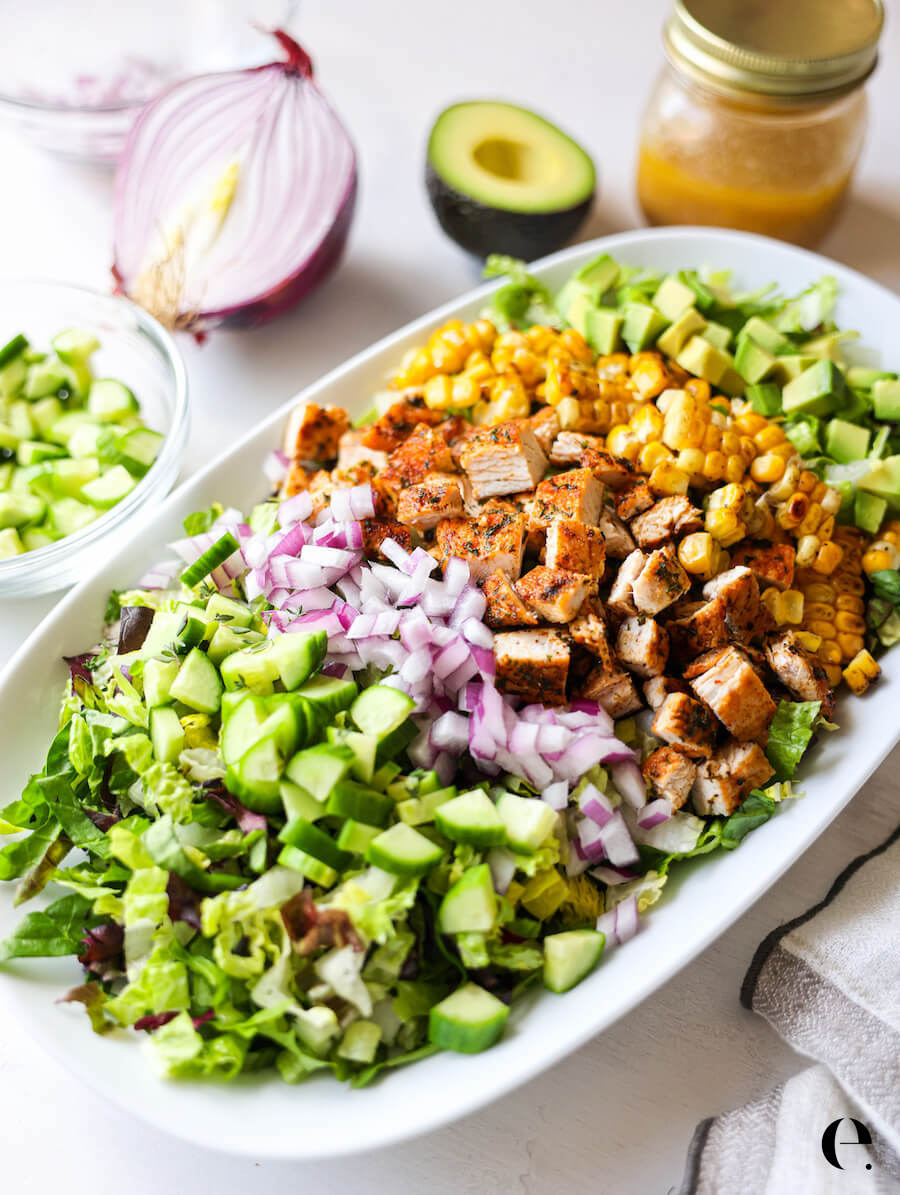
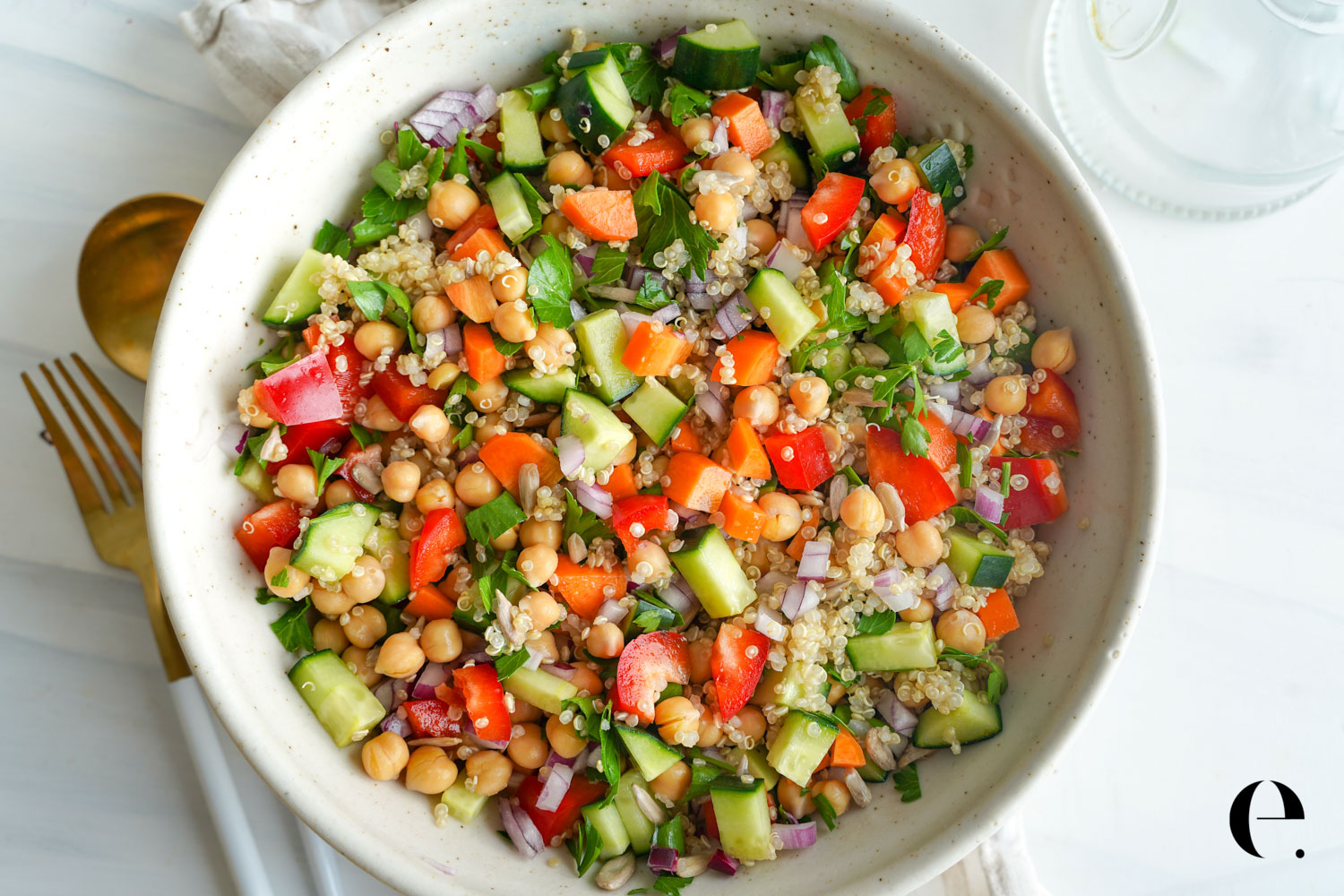

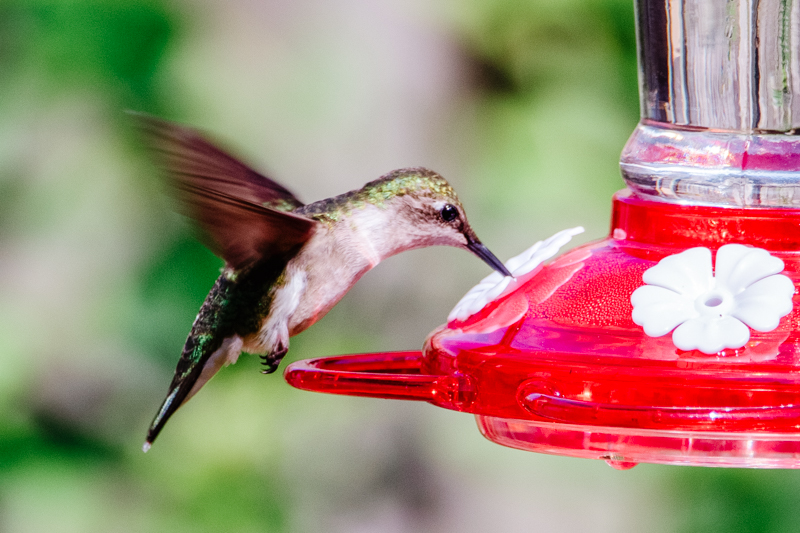
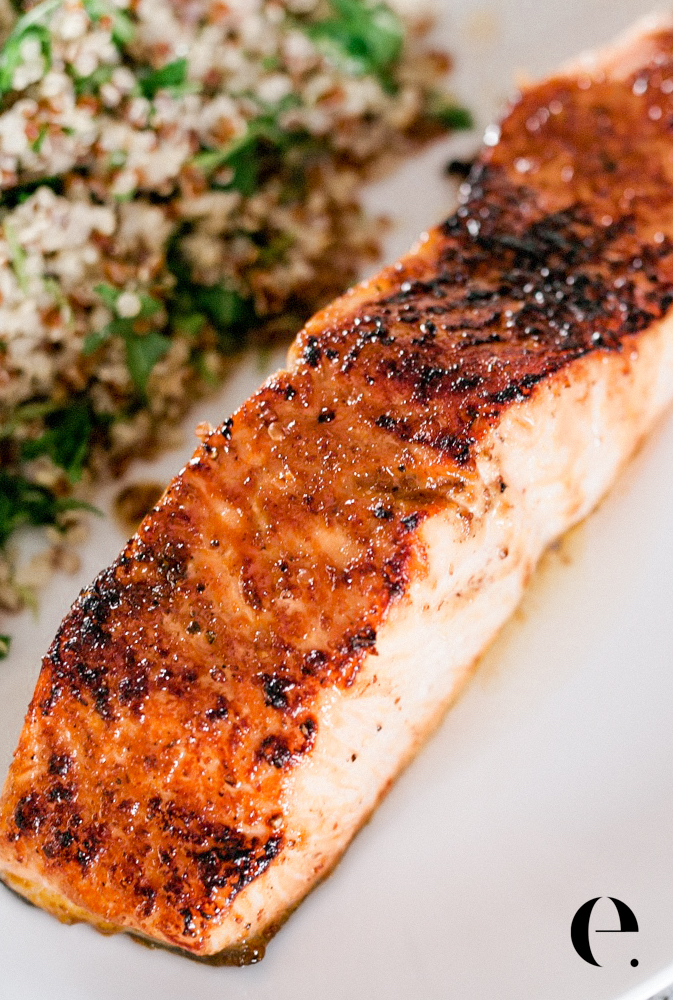
Leave A Review + Read The Comments →